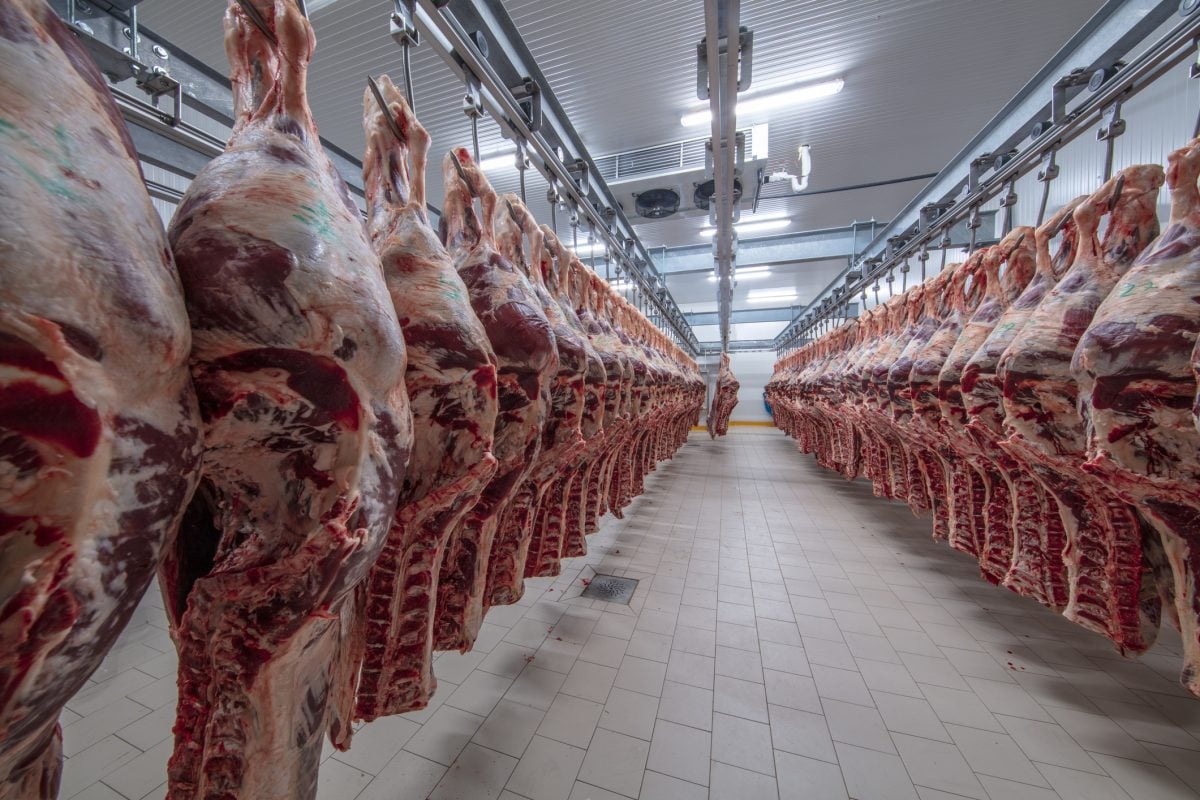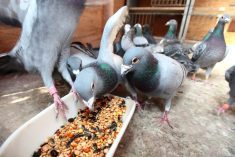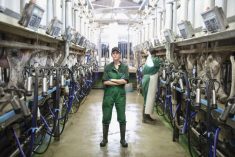Keeping up to date with COVID-19 details and recommended protocols is challenging for everyone at this time. CAHRC has created a dedicated web page with the latest information, recommendations, employee management tips, tools (posters, policies) and links to authorities. These details will help you respond to the pandemic and limit the impact and spread of COVID-19 within your business.
Ensure your workers have access to information about proper protocol, such as hand washing to limit transmission. Fact sheets to post in the work environment are available here.
Read Also

Trump says US will sell ‘so much’ beef to Australia
The United States will sell “so much” beef to Australia, U.S. President Donald Trump said on Thursday after Canberra relaxed import restrictions, adding that other countries that refused U.S. beef products were on notice.
Ensure your workers are aware of their responsibility to properly notify you if they are feeling unwell or of any risk of exposure to COVID-19 they may have encountered.
Communicate clearly with your workers about your expectations regarding sick leave.
Remind them of your HR policies during this pandemic, specifically around sick leave. If you do not have formal policies in place, templates are available in the AgriHR Toolkit.
Depending on the existing policy, it may be required to extend sick leave beyond the current policy to ensure workers with symptoms of or exposure to COVID-19 are not stressed by a financial burden when needing to self-isolate. Such an environment where employees have this comfort will encourage self-reporting and reduce potential exposure to other employees.
Ensure that workers with symptoms of or exposure to COVID-19 are supported to self-isolate.
Do not provide information regarding the name, date of birth, or other identifiers of any workers diagnosed with the COVID-19 virus. Your workers are entitled to privacy under Canadian privacy legislation. There are special circumstances when you may have to have to share this information (e.g. life threatening reasons). Consult with legal counsel before sharing any personal medical information of your workers.
Do provide information to your workers if they have been exposed to COVID-19 in the workplace.
If known, provide:
- date(s) of their potential exposure; and
- the extent and circumstances of their potential exposure (i.e., incident indirect contact versus prolonged direct contact).
Information for your employees
Follow the recommended methods of reducing transmission of the virus, including:
- wash your hands often with soap and water for at least 20 seconds, especially after using the washroom and when preparing food;
- use alcohol-based hand sanitizer if soap and water are not available;
- when coughing or sneezing:
- cough or sneeze into a tissue or the bend of your arm, not your hand;
- dispose of any tissues you have used as soon as possible in a lined waste basket;
- wash your hands afterward; and
- avoid touching your eyes, nose, or mouth with unwashed hands.
- clean the following high-touch surfaces frequently with regular household cleaners or diluted bleach (one part bleach to nine parts water): toilets, phones, electronics, door handles, tables, farm/business equipment and tools.
Managing the risk to the work environment
Limit or restrict visitors to the farm or business operation.
Implement a hand-washing regime for all employees.
Clean frequently-used surfaces with hospital-grade disinfectant.
Ensure employees are informed of the risks, symptoms, steps to self-isolate.
Consider restricting travel (business or leisure) and ask employees to self-isolate upon returning home from international travel.
Businesses that are receiving foreign workers should monitor advisories from the government departments responsible for the Temporary Foreign Worker Program.
Continue to follow recommendations provided around maintaining biosecurity and food safety standards.
Businesses that provide housing for their workers will need to ensure their risk management plan considers large numbers of employees being quarantined or requiring health care.
Ensure risk management and operational plans include pandemic plans for HR management. Having a risk management plan in place for dealing with events that may cause a crisis to the staff available to work will ensure that when/if that happens there is a structured, controlled response to it.
These type of plans should include identifying decision makers, roles and responsibilities, access to medical care, plans for both quarantine or transportation to medical facilities. They should also include communications planning such as who is the point of contact, medical contacts, internal and external communication plans, contact information for all staff, suppliers, community services.
The risk management plan should also identify what to do if staff are not available to conduct time-sensitive work (e.g. milking, strawberry picking) when not enough employees are available to do the work because of sickness. This may include having agreements with surrounding farmers for back up support.
Has there been animal-to-human infection in Canada?
There is currently no evidence to suggest that this virus is circulating in animals in Canada. It is possible that some types of animals may be able to get infected with COVID-19, but it is not yet clear whether they would show symptoms.
There are still many unknowns about COVID-19 and this is an area that remains to be studied and understood.
Until we know more, if you have been diagnosed with COVID-19 and have contact with animals:
- avoid close contact with them;
- avoid coughing and sneezing on the animals;
- have another member of your staff care for the animals;
- if this is not possible, always wash your hands before touching or feeding them; and
- limit the animal’s contact with other people and animals do not snuggle or kiss them, or let them lick you, sit on your lap, or sleep in your bed.
— Jennifer Wright is a senior HR advisor and stakeholder engagement specialist with the Canadian Agricultural Human Resource Council in Ottawa. Farm employers with questions about managing workers and business are encouraged to contact CAHRC.














